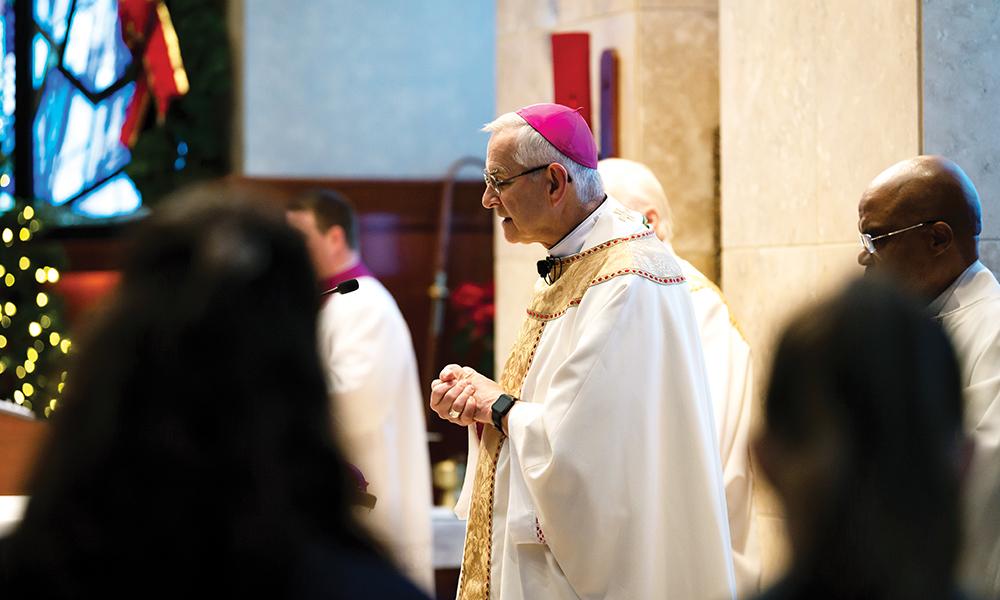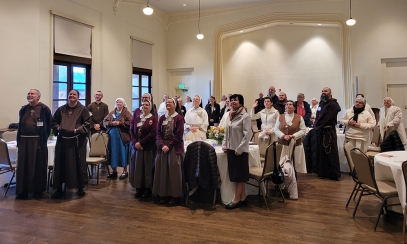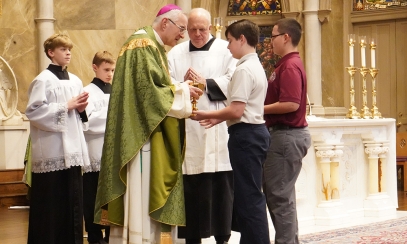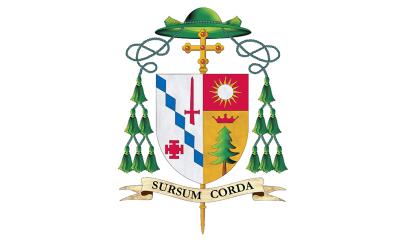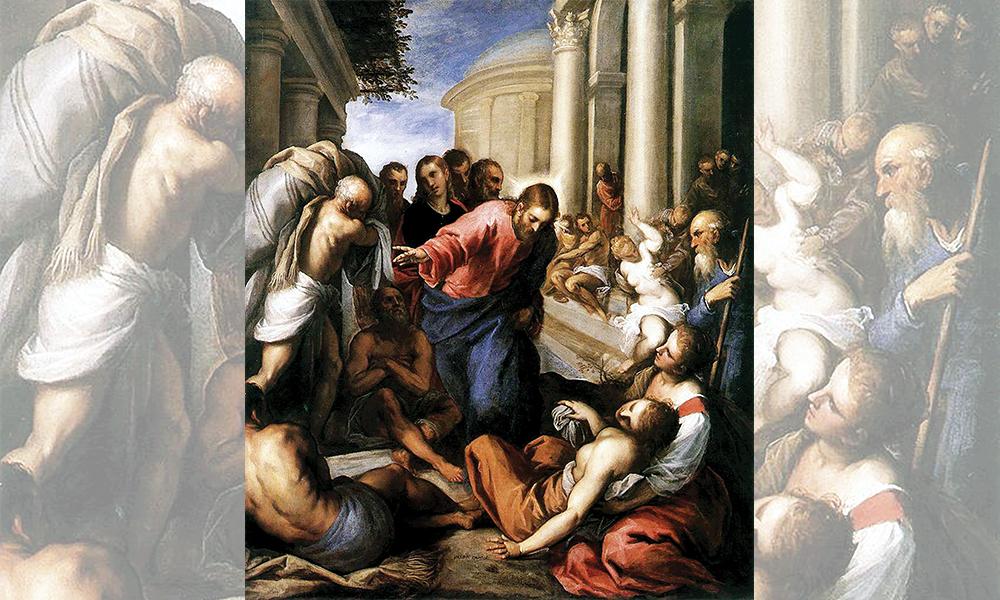
The Consolation of the Church Made Manifest
Dear sisters and brothers,
In the past few months, I had the blessed occasion to meet up with leadership and staff from Ascension St. Vincent’s Birmingham and to visit Ascension St. Vincent’s Blount in Oneonta. Admittedly, they were both moving experiences for me as I witnessed firsthand their enthusiastic dedication and commitment to care for the sick among us. It is edifying to know of the many priests, deacons, women religious, and lay ministers who visit our hospitals, care facilities, and homebound throughout our diocese, offering the consolation of the Church at the moment of need. As a faith community, we also have an opportunity to surround them in our prayer as we do every time we gather for Mass. Many parishes pray for the sick in a variety of ways.
Dear sisters and brothers,
In the past few months, I had the blessed occasion to meet up with leadership and staff from Ascension St. Vincent’s Birmingham and to visit Ascension St. Vincent’s Blount in Oneonta. Admittedly, they were both moving experiences for me as I witnessed firsthand their enthusiastic dedication and commitment to care for the sick among us. It is edifying to know of the many priests, deacons, women religious, and lay ministers who visit our hospitals, care facilities, and homebound throughout our diocese, offering the consolation of the Church at the moment of need. As a faith community, we also have an opportunity to surround them in our prayer as we do every time we gather for Mass. Many parishes pray for the sick in a variety of ways.
To receive the sacraments, to listen to someone’s burdens and setbacks or successes, to pray for the healing touch of Christ, is itself a moment of consolation. We also pray for those in the health care profession that they use their God-given skills and talents to offer the best care. Honestly, for many, it is a sign of hope and consolation.
I must give a shout-out to our many priests who answer the call, sometimes at inconvenient moments, to go to the hospital to anoint a critical or dying patient with the sacrament of the sick. I thank those who are generously present at critical moments for others. There is a solace knowing that we are connected with the wider faith community.
Our illnesses are linked to the healing of Jesus. Our suffering is readily connected with Jesus’ resurrection which ultimately defeated all sickness and death.
From the evocative Gospel story of raising up Jairus’ daughter (cf., Mk 5:21-43; Mt 9:18-26; Lk 8:40-56), or the healing of the women with hemorrhages (cf., Lk 8:43-48), or curing the blind man (cf., Mk 8:22-26; Mk 10:46-52; Lk 18:35-43; Jn 9:1-12) and deaf man (Mk 7:31-37), to healing Peter’s mother-in-law (cf., Mk 9:29-31; Mt 8:14-15), or raising Lazarus from the dead (cf., Jn 11:38-44), and many other instances sprinkled throughout the Gospel, we have a Lord Who is concerned about us personally.
Through His wounds, He walks with our brokenness, whether it be physically through the specialized ministry of health care professionals or spiritually through the interventions of the priest in the sacraments of reconciliation and anointing of the sick.
Caring for the sick, medically and spiritually, has been part of our tradition from the earliest of times. “Is there anyone sick among you, let them send for the elders (priests) of the Church,” admonishes St. James. (cf. Jas 5:14) So, the sacraments of anointing of the sick and reconciliation go hand in glove to aid the healing process.
Having been the recipient of care whenever I needed hospital services, I know how important it is to know that our Lord is close at a given moment. The dignity of the human person radiates to see the gift of God among us, even in its weakness and most vulnerable forms.
May we not only salute those in the health care profession and those in our spiritual care departments but also pray for those who have generously dedicated themselves to the care of others in the ministerial and personal capacities. May God bless you all!

